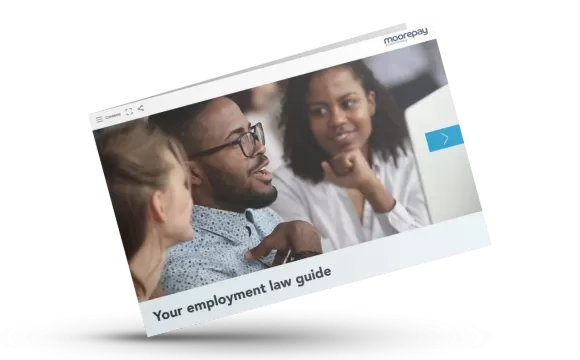Can you dismiss an employee because they’ve been convicted of a crime and sent to prison?

What should you do if an employee has been charged with a serious criminal offence for something that has happened outside of the workplace?
Can you terminate their employment on the grounds that they will no longer be available for work? And what about the reputational risk to your business?
Each case should be decided on its own merits and in some situations, it may be fair to dismiss an employee. However, there’s no automatic right to dismiss an employee because they’ve been charged with or convicted of a criminal offence.
A check list
For a dismissal to be regarded as fair it must be for a specific reason that is related to:
- The employee’s conduct
- The employee’s capability or qualifications to do their job
- A statutory duty or restriction prohibiting the employment from being continued
- Or for some other substantial reason of a kind which justifies the dismissal
Important considerations before dismissing an imprisoned employee
There are several things you need to consider before deciding whether to dismiss an imprisoned employee. This includes the nature of the conviction, the employees’ job, their responsibilities, their seniority and their working relationship with colleagues and customers.
Length of service
If the employee has more than two years’ service and has been imprisoned for a short period of time for an offence unrelated to their work, it might be considered reasonable to hold their job open for their return after release.
On the other hand, if the conviction and length of the employee’s sentence has the potential to negatively impact your business, including bringing the business into disrepute, termination of employment is likely to be found to be reasonable and the dismissal fair. Having said that, you must still follow a fair process which includes the right of appeal.
Following a full and fair procedure
As with all dismissals, you should follow your normal disciplinary procedure as detailed in your employee handbook. The process should include a thorough investigation of all the available facts, and you must give the employee a chance to explain their actions.
You should attempt to get the employee’s version of events either by trying to interview the employee in prison (although this is likely to prove difficult) or by seeking their written submissions which could be via their trade union or legal representative before making any final decision to dismiss.
ACAS code of practice
In the absence of an employee handbook, you must follow the relevant sections of the ACAS code of practice on disciplinary and grievance procedures, which sets the minimum standard of fairness that your business should follow. The employee needs to be aware of the process being followed and involved wherever possible.
Notwithstanding the fact that an employee has been imprisoned, a tribunal is likely to find that any dismissal is unfair if you have failed to follow a fair process.




